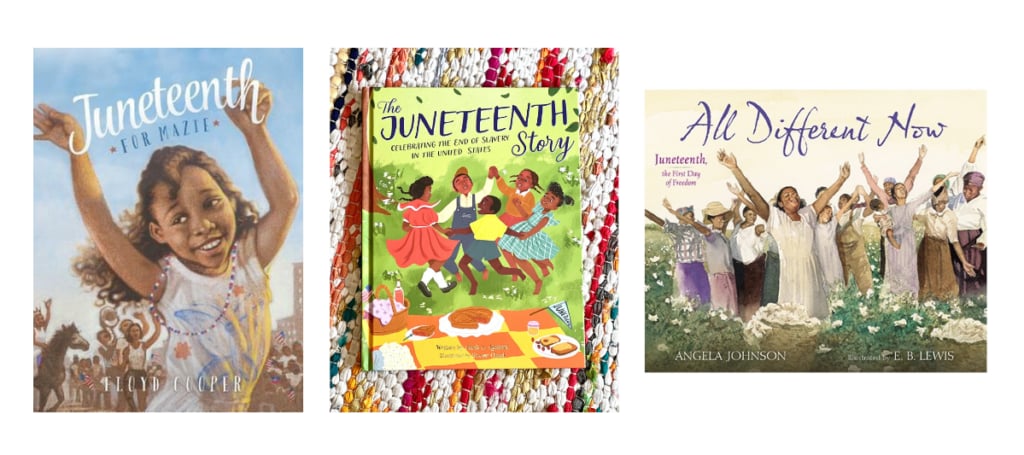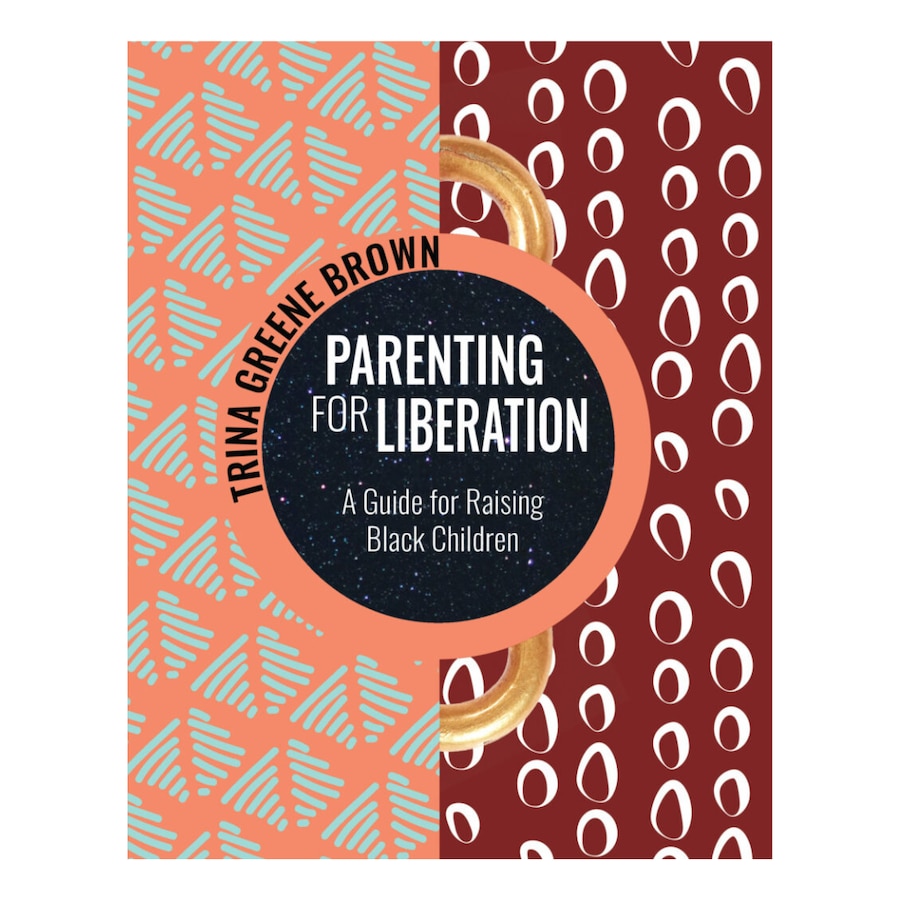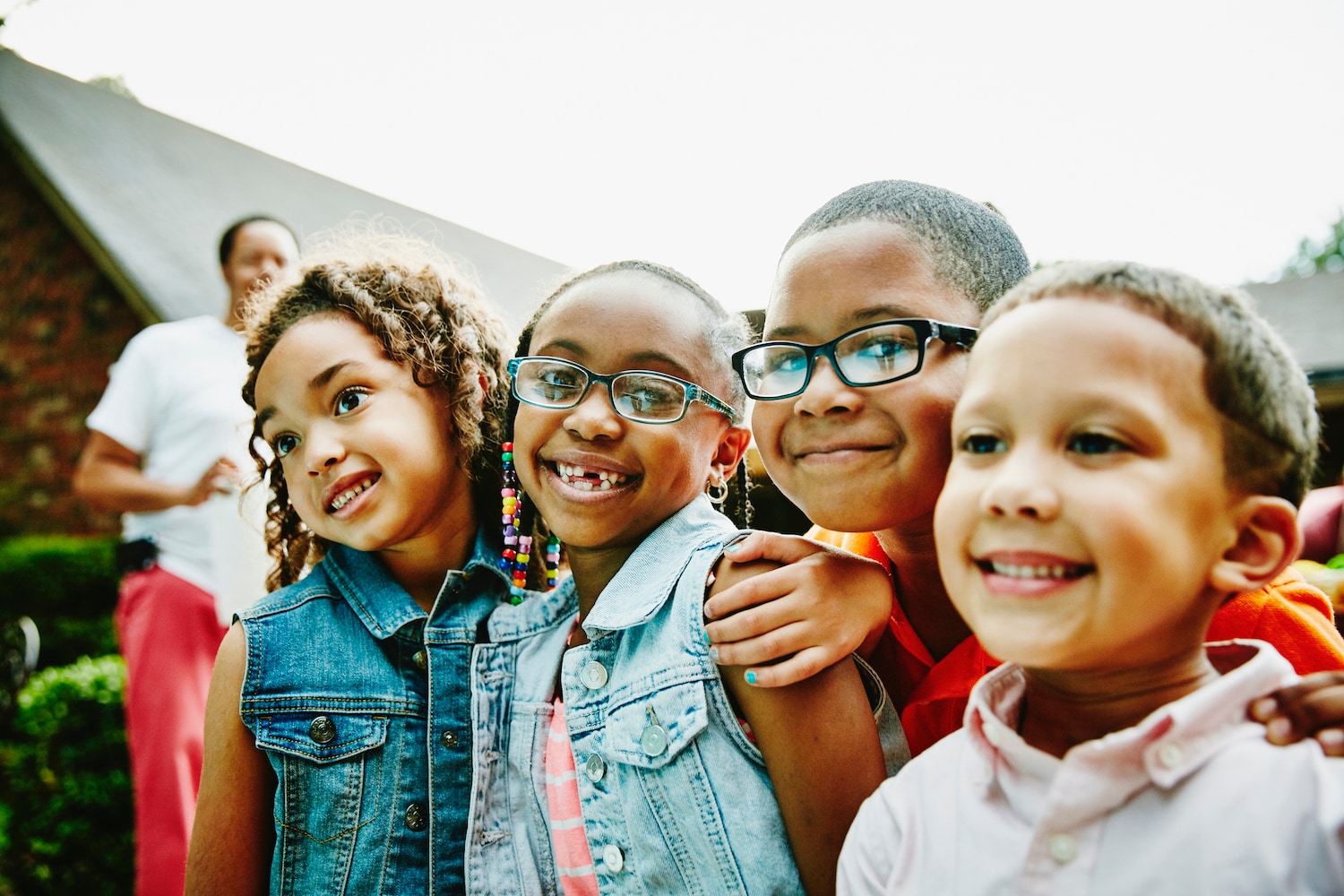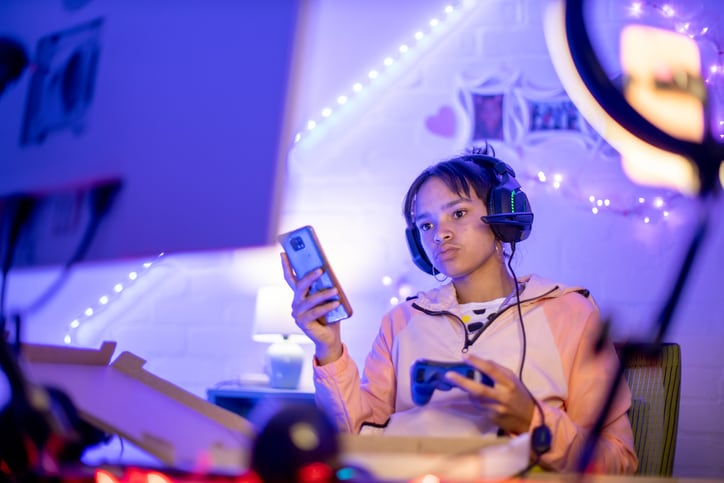Embracing histories that humanize marginalized voices and face the unflattering aspects of our country’s past is vital to create a more equitable society. Yet often, the history we accept affirms dominant perspectives and limits the perspectives of people of color. As parents and caregivers, we’re ideally situated to disrupt this by explaining Juneteenth for kids to understand.
“Cultural holidays like Juneteenth provide an opportunity to reflect on the contributions of Black Americans and symbolize the complexity of being Black in America.”
— Natalie J. Graham, director of The Institute of Black Intellectual Innovation
Talking to children about cultural holidays — for example, Juneteenth for kids — sounds hard. But it doesn’t have to be. Having these conversations holds newfound significance and is even more important as we celebrate Juneteenth as a national holiday. Read on to explore Juneteenth activities for kids and how they can help teach the history of Juneteenth and make this learning process fun.
What is Juneteenth and why is it important?
“Juneteenth” commemorates the day — June 19, 1865 — that Union troops arrived in Galveston Bay, Texas, and informed the remaining 250,000 enslaved Americans that the Emancipation Proclamation signed by Abraham Lincoln granted them freedom. Although the popular story goes that the news took a full two and a half extra years to get to Texas after the executive order was signed in 1863, many organizations challenge this narrative today.
The Smithsonian National Museum of African American History and Culture (NMAAHC) is one of those organizations. “Even though the Emancipation Proclamation was made effective in 1863, it could not be implemented in places still under Confederate control,” they write on a post addressing the historical legacy of Juneteenth. Directly put: The enslavers in the southern United States knew that enslaved Black people were free by decision of executive order. Still, they refused to acknowledge this information — and chose to withhold it — until Union troops liberated the enslaved people by force. And even then, the formerly enslaved would have to wait for the news from their former enslavers and were often forced to transition into sharecropping to make a living.
The year 2024 marks 159 years since the formerly enslaved Black Americans learned of their freedom. The first Juneteenth was observed in 1866, and through the years, Juneteenth has symbolized different things to different members of the Black community.
The first Juneteenth was observed in 1866, and through the years, Juneteenth has symbolized different things to different members of the Black community.
Although Juneteenth doesn’t hold significance to all Black/African descended peoples (there are many cultural subgroups), the holiday is still important as a stepping stone to freedom for all African descendants and even non-Black people of color in the United States. People of all ethnic and racial backgrounds can observe this day.
While there are many names to describe this event, it’s clear that each of them celebrates the joy that accompanies finally being free from legal enslavement. Other names for Juneteenth include:
- Freedom Day.
- Emancipation Day.
- Jubilee Day.
- Liberation Day.
Join Care for free
When did Juneteenth become a national holiday?
Juneteenth is a uniquely American holiday. It gained federal recognition in 2021 after decades of advocacy from Black activists and community leaders. Opal Lee, who is often called “the grandmother of Juneteenth,” labored tirelessly to make Juneteenth a federal holiday. Many non-Black Americans had not heard of Juneteenth until it was observed as a federal holiday. However, the holiday has deep roots in the southern United States and many have celebrated this day for generations. In 1980, Texas became the first to acknowledge June 19th as a state holiday. Because of this, it’s also often considered a regional/southern celebration. However, many states have followed suit in recent years.
What does Juneteenth mean today?
The true Independence Day for Black Americans
Even as Black people continue to experience discrimination and limited opportunities to exercise their freedom, some Black Americans like Trina Greene Brown, founder of Parenting for Liberation, view Juneteenth as their true Independence Day. After all, Black Americans were still enslaved while the rest of the country celebrated the freedom associated with the Fourth of July. “I think it’s a great time for families to come together and talk about our resistance,” says Greene Brown. “Juneteenth is a day to celebrate that our ancestors fought to be liberated. It’s a time to celebrate their power, brilliance and tenacity.”
“Juneteenth is a day to celebrate that our ancestors fought to be liberated. It’s a time to celebrate their power, brilliance and tenacity.”
— Trina Greene Brown, founder of Parenting for Liberation
A day of shared struggle and pride
Greene Brown also sees Juneteenth as an opportunity to embrace the spirit of pan-Africanism and the shared struggle of Black people globally. She notes that Juneteenth should be seen as a source of pride as with any other national or ethnic celebration of independence.
A time for healing and growth
For some, Juneteenth is a reminder that liberation is always coming — even if there’s a delay in its arrival. For others, like Emanuel H. Brown, executive director of Acorn Center for Restoration and Freedom, a Black, queer and trans-led organization that seeks to provide growth and healing opportunities that are “rooted in Black Diasporic wisdom,” it’s a reminder of the importance of challenging the narrative that overlooks the rich cultural histories and strength of the Black community.
A day of Black love
“Juneteenth symbolizes the promise of freedom by any means necessary,” Brown says. “The constant reminder that Black people freed ourselves well before slavery ended through the ways we found healing, joy and love in the harshest conditions.”
“Juneteenth symbolizes the promise of freedom by any means necessary.”
— Emanuel H. Brown, executive director of Acorn Center for Restoration and Freedom
He notes that the Black Diaspora continues to establish those ways of living and thriving centuries later. The Acorn Center’s Juneteenth celebration takes place during its Black Love Convergence conference, which is being held virtually June 16-18 this year.
Kid-friendly resources to explain Juneteenth to a child
Now that we’ve explained what Juneteenth is and why it is important, you may want tips and ideas for how to explain Juneteenth to a kid.
Tonya Abari, freelance writer and editor and author of “Let’s Celebrate Juneteenth,” says for her family, Juneteenth is more than a day to celebrate past successes. It is also a day of reclamation, reflection and education. She didn’t learn about Juneteenth until she was an adult, so she’s taking responsibility by teaching her children its significance while they are young.
“I was embarrassed to admit this at first, but as I grew older — and spent time as an educator — I understood that many students and adults alike never learned about Juneteenth due to a national lack of culturally responsive curriculum and reading resources.”
She says there are many pieces of literature, audiovisual aids and art exhibits to aid you in teaching your children about the importance of Juneteenth.
Juneteenth resources made for kids:
- Understanding & Celebrating Juneteenth: Help kids learn about Juneteenth — and its related topics like slavery and freedom — with this kid-friendly guide, developed by the early childhood education team at the NMAAHC.
- What Is Juneteenth? Watch this cartoon with fun facts about Juneteenth from FresBerg Cartoon.
- Juneteenth: PBS Kids offers this video all about the holiday.
Juneteenth also offers youth a chance to go beyond lessons on slavery toward the continued struggles Black Americans faced after the formal abolition of slavery. Older children can benefit from reading Fredrick Douglass’ famous speech ‘What to the Slave Is the Fourth of July?’ (In this video, descendants of Frederick Douglass read and respond to excerpts of his speech).
And learning about history isn’t just for children. There’s so much for all of us to learn. This handy list of Juneteenth books for kids put together by Kabrena Williams of Kb in Bloom, can benefit folks of all ages.
Juneteenth activities for kids to add to the celebration
It’s simple but impactful to commemorate Juneteenth through family activities. The earlier Juneteenth celebrations involved communities of Black Americans coming together to share food, dance, song and often prayer in acknowledgment of freedom. We can recreate much of this today. Doing family crafts after listening to stories can help bring the lessons home.
Juneteenth activities, crafts and media
Try a few of these informative and engaging Juneteenth celebration ideas others have put together in the past few years:
- Listen: African American folk tales and songs.
- Explore: Records of the Freedman’s Bureau.
- Enjoy: Special meal with loved ones.
- Create: A Juneteenth flag.
- Learn: The interconnectedness of Indigenous communities seeking refuge from colonization and Maroon communities seeking freedom from enslavement.
Many families celebrate Juneteenth by doing activities, like the above, that are rooted in tradition. But a new generation of Black Americans are making activities to celebrate emancipation too!
- The Gracie’s Corner original “Juneteenth Song“ has a catchy beat and inclusive video showing everyone can celebrate Juneteenth. (Sesame Street has a pretty cute “Let’s Celebrate Juneteenth” song that describes ways to celebrate too!)
- The Brown Bear Book Club shares several quick Juneteenth activities.
- What is Juneteenth, and why is it important? by TED-Ed is both brief and powerfully comprehensive as it retells the journey to emancipation.
Children’s books to read around Juneteenth

Celebrate the month by reading Juneteenth books for kids — or Black history generally.
- “Let’s Celebrate Juneteenth” board book by Tonya Abari.
- “Juneteenth for Mazie” by Floyd Cooper.
- “The Juneteenth Story: Celebrating the End of Slavery in the United States” by Alliah L. Agostini.
- “Juneteenth Jamboree” by Carole Boston Weatherford.
- “All Different Now: Juneteenth, the First Day of Freedom” by Angela Johnson.
- “Opal Lee and What It Means to Be Free: The True Story of the Grandmother of Juneteenth” by Alice Faye Duncan.
- “Little Leaders: Bold Women in Black History” or “Little Leaders: Exceptional Men in Black History” from the Little Leaders series by Vashti Harrison.
Greene Brown‘s book “Parenting for Liberation: A Guide for Raising Black Children” is a helpful resource to support parents of color with culturally relevant parenting all year long.

Find local Juneteenth events — or create one at home — to get involved
Now that Juneteenth is an official federal holiday it’s easier for families to learn its history and participate in the emancipation celebration. This year, local events and activities will take place across the US. If you’re looking for opportunities to join in the fun, consider searching “Juneteenth celebration and [insert your city]” or check out a site like Eventbrite to see what’s happening in your local community.
Families seeking to celebrate at home can create layered Juneteenth experiences with kids. Pull together your favorite people of all ages, choose some Juneteenth activities for kids and share some good food. At the end of the celebration, gather everyone together for storytelling. Especially when told by elders like grandparents and great grandparents, this activity is a powerful method for transgenerational Juneteenth learning and engagement. Encourage children to visit with and ask questions of older loved ones.
The bottom line
This holiday brings opportunities for parents and caregivers to use Juneteenth lessons for kids to disrupt patterns of oppression today. Holidays like Juneteenth that celebrate the end of historic grievances allow us to seek opportunities to achieve freedom as a nation truly. Educating our children is step one of creating that better world. As we learn each other’s origin stories, we’re able to see the vulnerabilities in our nation and even reflect on the legacies that created the treatment we see today.
Holidays like Juneteenth that celebrate the end of historic grievances allow us to seek opportunities to achieve freedom as a nation truly.
Parents and caregivers are at the frontlines of social change. Through our education and efforts, we make a world where people of all identities can truly be free.






